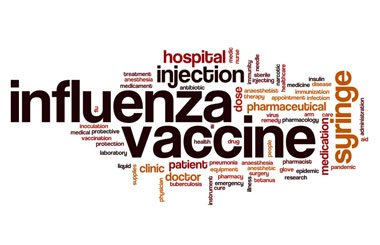
Flu poses higher risks for young children, older adults, and people with certain chronic health conditions, such as asthma, heart disease or diabetes. The CDC and its Advisory Committee on Immunization Practices (ACIP) recommend annual influenza vaccination for everyone 6 months and older as the first and most important step in protecting against influenza and its potentially serious complications.
NIVW provides an opportunity for public health professionals, health care professionals, health advocates, communities, and families from across the country to work together to promote flu vaccination before the flu activity peaks. Flu vaccination helps
- prevent serious medical events associated with some chronic conditions
- reduce flu illnesses, doctors’ visits, and missed work and school due to flu and
- avoid flu-related hospitalizations
The CDC recommends use of any licensed, age-appropriate influenza vaccine in the 2018-2019 influenza season, including inactivated influenza vaccine [IIV], recombinant influenza vaccine [RIV], or live attenuated influenza vaccine (LAIV). These vaccines cause antibodies to develop in the body about two weeks after vaccination, which provides protection against infection with the viruses that are in the vaccine.
Certain everyday preventive actions can stop the spread of germs:
- Avoid close contact with sick people
- Limit contact with others as much as possible while sick
- Stay home for at least 24 hours after your fever is gone except to get medical care or for other necessities
- Cover nose and mouth with a tissue when you cough or sneeze and throw the tissue in the trash and wash your hands
- Wash hands often with soap and water or use an alcohol-based hand rub
- Avoid touching your eyes, nose and mouth
- Clean and disinfect surfaces and objects that may be contaminated with germs like flu.
For more tips, click here.